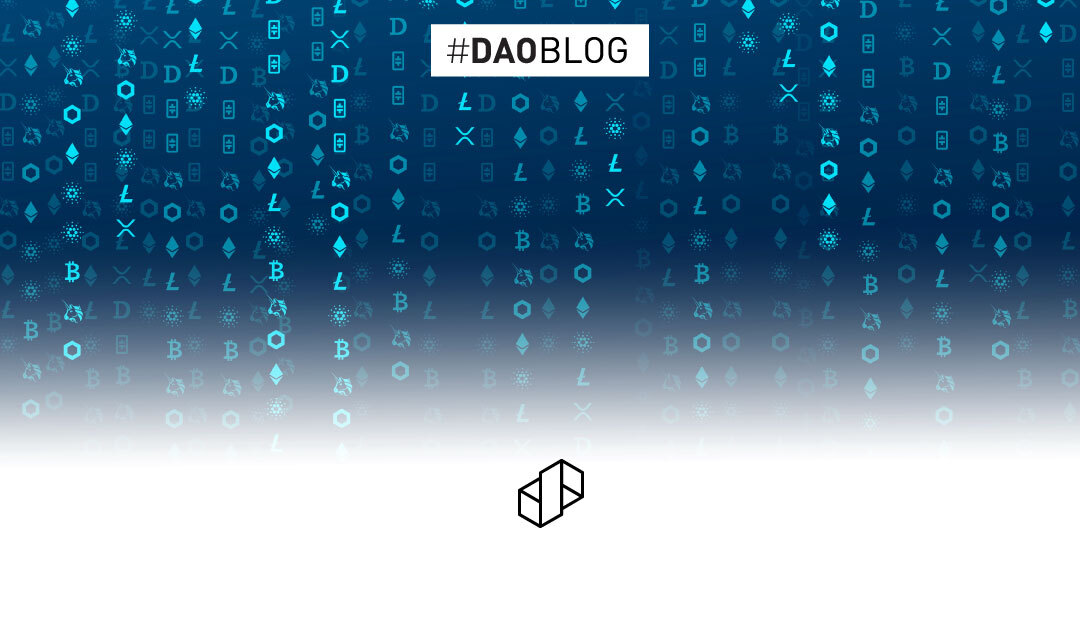
What are DAOs and are they the future?
One of the most appealing features of digital currencies is some of them aim to be decentralized; the ‘unconsolidation of power.’ This means they are not controlled by a single entity or institution, such as a central bank. Instead, they are governed by various computers, networks, and nodes.
Motivated by the level of decentralization these currencies had, in 2016, a group of developers came up with the idea of a Decentralized Autonomous Organization, more commonly known as a DAO.
What is a Decentralized Autonomous Organization (DAO)?
A DAO is an emerging form of an organization without any central leadership. Making decisions through a bottoms-up approach, members of the organization share a common goal to act in the entity’s interest. They are internet-based organizations that operate upon a set of rules enforced by a blockchain.
DAOs are primarily based on the internet and are managed by the members. A community-based organization, they can have a large number of purposes ranging from venture capital firms to charities for specific causes.
How do DAOs work?
They operate using smart contracts. Smart contracts are essentially piles of code that automatically execute whenever certain criteria are met.
These smart contracts define the rules and regulations of the DAO. All stakeholders get voting rights and can then decide and influence new proposals. This ensures that the entity remains decentralized, as a proposal will only be passed once most stakeholders vote in favour of it. How that majority is determined varies and is defined in smart contracts.
Consequently, DAOs remain autonomous and transparent. They are also built on public blockchains, so all who wish to view the code can do so.
Launching a DAO
Typically, a launch takes place in three steps.
- Creation of smart contract: Developers create a smart contract that defines the set of rules the entity must abide by.
- Raise funding: The founders must figure out how to raise the financing for the entity to operate. This is usually done through selling tokens for fiat, which also allows stakeholders voting rights.
- Deploy on blockchain: Once everything else is sorted out, the DAO is deployed on the blockchain, and the stakeholders take over operations.
Why do we need DAOs?
Numerous benefits arise from creating a DAO.
- Decentralization
In a DAO, organizational and governance decisions are made by stakeholders that entail numerous individuals as opposed to a singular authority or a board of directors, decentralizing power across the organization. - No trust required
There’s a significant lack of trust required for a DAO. A traditional organization requires insurmountable trust toward the people behind it, whereas, in a DAO, only the code needs to be trusted. - Increased participation
Community members of a DAO may feel more empowered as a result of a direct say in how the DAO is run. Their voting power allows them to cast their votes in the way they feel is most beneficial for the DAO. - Community-building
A DAO features people coming together from all over the globe and interacting with each other. These people are often supporting a similar cause or idea and may interact with each other regardless of where they live.
The first DAO: The DAO
The DAO was the first iteration of a Decentralized Autonomous Organization founded in 2016. The organization was purposed to be a venture capital fund and was fully autonomous, unaffiliated to any nation or state. Upon launch, the organization managed to raise more than $150 million in funds and stakeholders were set to receive gains in the form of dividends or token appreciation.
However, later that year, the DAO’s code had security vulnerabilities, and consequently, it was hacked and some of the funds were stolen. There were also claims that the DAO was tokenizing securities, which at the time, was illegal.
Looking forward
Fast forward to 2022, hundreds of DAOs have sprung up, some successfully, others not. Their purposes have again ranged from charitable causes to decentralizing finance. Looking forward, the DAO may be the modern organizational revolution that the world needs to free itself from centralized and strictly governed systems. We at DAO PropTech are not a DAO (yet), as detailed above, but we are certainly striving and aiming to become one in its surest form.
To read more blogs, visit our blogs page here.

Esa Imran
Digital & Communications Specialist

 Book a Meeting
Book a Meeting